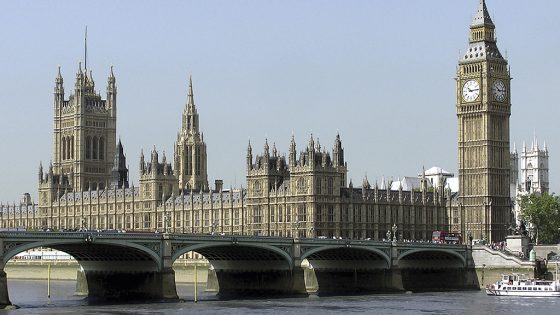Construction sector insiders are demanding action from chancellor Rachel Reeves when she delivers her first budget this Wednesday (30 October).
Reeves has already announced boosts of £550m and £500m for school rebuilding and affordable housing respectively, and she has met finance leaders as part of a new infrastructure taskforce aimed at bringing in investment.
However, the chancellor has also shelved two major road projects and put the New Hospital Programme under review, adding to uncertainty about project pipelines.
In the past few months, contractors and construction trade bodies made submissions to government – a formal list of budget asks. Here’s a glimpse of what they hope will be in the red briefcase.
Infrastructure
Many are hoping Wednesday’s announcement will be an infrastructure budget.
Amey chief executive Andy Milner said policies to upgrade and protect infrastructure could “set the right conditions for UK economic growth”.
Milner urged the government to invest in green infrastructure, working in partnership with industry to encourage innovation.
He said: “By future-proofing infrastructure, we can grow the economy and tackle the challenges facing us from climate change.”
He called for a “full-lifecycle approach” to infrastructure, prioritising maintenance and upgrades of existing assets to protect assets for generations to come.
The Construction Products Association (CPA) had similar asks. In its formal submission to the government, chief executive Peter Caplehorn said the government should focus in the short term on repair and maintenance projects, which provide an “immediate and obvious” return on investment for taxpayers and a stimulus for the construction sector.
The “potentially disastrous” situation with RAAC could have been avoided with proper funding for regular maintenance, he added.
Caplehorn also suggested that the Treasury should audit projects during the business case approval process for consistency with the Construction Playbook, which it said was frequently ignored.
Recent setbacks to major infrastructure projects remained top of mind. David Crosthwaite, chief economist at the Building Cost Information Service, echoed calls for certainty, calling on the government to either “commit to the current pipeline or quickly establish a new one”.
He said: “We heard plenty of catchy slogans from Labour in their manifesto and post-election, but very little about how these will be delivered in practice.
“Bold action is needed to meet its promises on housing, infrastructure investment and decarbonisation, all while tackling critical economic and industry challenges.
“With the spending review and 10-year industrial strategy due to be published in spring 2025, it’s vital that key decisions aren’t just delayed until next year.”
Sustainability
Many industry figures also have green commitments at the top of their wish lists. In addition to infrastructure investment, Crosthwaite said one of the most impactful measures the government could announce would be mandating the reporting of embodied carbon. He pointed to proposals from industry group Part Z as a framework for policy.
Trade body the Mineral Products Association (MPA) called on the government to specify lower-carbon concretes and asphalts as a default in public procurement.
Both the MPA and CPA called for the UK Carbon Border Adjustment Mechanism to be brought forward to 2026 to align with European Union rules. This would put a carbon price on imported materials and discourage firms from moving production to other countries where emitting carbon is cheaper, they argued.
The UK Green Building Council focused on the “critical task” of making homes energy efficient. While it welcomed a previously announced £7.5bn investment over five years, in its submission it urged the government to increase its commitment to £6bn a year over 10 years “so that industry and the country has the chance to plan and deliver a long-term sustainable programme”.
It also called for stamp duty to be pegged to a home’s energy performance, to encourage homeowners to invest in energy efficiency upgrades.
Financial incentives
The Construction Plant-hire Association’s budget submission proposed several concrete policies aimed at supporting plant-hire companies to thrive.
It asked the government to temporarily reintroduce a rebate for using biodiesels, maintain a cut in fuel duty announced in 2022 and trial a scrappage scheme for non-road mobile machinery operating in freeport zones.
“[Construction Plant-hire Association] members continue to operate their businesses on very tight margins and any increase in additional costs will have an adverse impact on investment in the short to medium term,” said chief executive Steve Mulholland.
The trade body also repeated its call for an extension of Full Expensing Allowance, a tax break currently limited to plant rented with an operator.
The MPA asked for the aggregates levy – a tax aimed at reducing new aggregate extraction – to be frozen, and repeated proposals for an aggregates levy community fund, which would ringfence 4 per cent of levy revenue for local community and biodiversity projects.
Meanwhile, Crosthwaite warned that rumoured rises in corporation and capital gains taxes would be unlikely to stimulate investment in construction.
Skills
Crosthwaite also called for the government to invest in education and training to create a pipeline of workers with green construction skills, including retrofit, heat pump installation and sustainable modern methods of construction.
The CPA asked the government for apprenticeship incentives for areas with skill shortages, in particular allowing flexibility in levy fund spending to target green and digital “jobs of the future”.
“With labour shortages across the manufacturing and construction sectors, a working skills policy is vital to achieving much needed growth and opportunity,” Caplehorn said.

